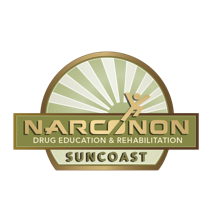The Hardest, Easiest Decision You’ll Make
When the addictive issues of a loved one come to light, the first response, generally, is anger.
“How could they do this to us again?”
“Doesn’t he realize he has a family to take care of?”
“She has so much going for her. Why did she do this?”
“Well there goes your job! I hope you’re happy!”
“Is that where the money went that we sent you? I’m done! Get out!”
Once the initial anger subsides, the grave reality of the addict’s situation sets in... at least for the family. They know their loved one may be one pill, one hit or one shot away from a fatal overdose. The question for the family is whether or not to help them or turn their backs? Most families, in fear of the possible death of their loved one, will choose to help. This now begins the arduous and confusing process of choosing a rehabilitation program that will adequately suit the addict’s individual needs.
Treatment Options
Years ago, there were only two mainstream methods for addiction rehabilitation; a 12-step based treatment center for 30 days followed by AA/NA meetings or prison which is a less than therapeutic environment. 12-Step programs are one of the oldest treatment modalities and work well for some people. However the 12 -step model has not proven successful for all addicts, evidenced by the growing number of addicts. In the past, there weren't many other options available. In more modern times however, alternative rehabilitation programs have sprouted up everywhere; from wilderness therapy programs, boot camp programs and Behavioral Modification to the questionable practices of Harm Reduction therapy (they seriously try to teach you to use drugs successfully) and shamanic spiritual journeys through your third eye. Needless to say it is stressful to find an appropriate program in a sea of cure-alls. Sifting through the garbage, propaganda and promises to project you into the astral plane, you can still find well-established, proven treatment centers that can help.
The Right Questions to Ask
When searching for a rehab ask the following questions:
-
Does the program handle the root causes of the addiction?
-
Does the program handle the physical side to the addiction and rid the body of toxins?
-
Does the program have an exit plan or aftercare strategy?
-
Will this program put my loved one on psychiatric medications and saddle them with just another prescription?
-
Does the program have a nutritional component?
These questions are important because they embody the important factors when considering a treatment program. Every program is different and not every approach is effective. It is important that a program handles the physical causes of continued drug use, does not use drugs to get a person off drugs and offers a nutritional component to restore the deficiencies in the body caused by drug use and an addictive lifestyle.
Choosing a rehabilitation program for yourself or a loved one is a highly stressful and emotional process. Make an informed decision based on factual, non-opinionated information. When families are searching for drug abuse solutions, often it is a life and death situation that should not be taken lightly. When a person has failed traditional treatment time and time again, an alternative should be sought out. When choosing an alternative program, consider the one that best suits the needs of the person. Cost and location should be secondary. The cost of not finding the right program can prove astronomically more expensive than a one-time payment to a treatment center that will actually work.
Call us for information about the Narconon drug rehabilitation program.
